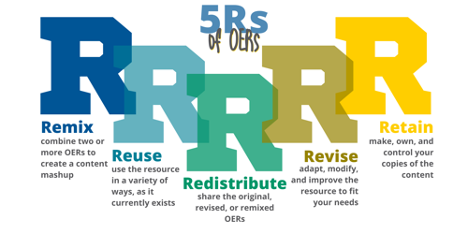What are OERs?
OER refers to any educational materials that have been released into the public domain or with an open license such as Creative Commons. They are usually created as free online resources to help decrease the cost of education and increase access for a variety of learners. But beyond using these open resources, you can also revise, remix, and redistribute them while retaining control over your own copies.
What kinds of things can be considered OERs?
- Open Textbooks
- Course Materials
- Lesson plans and activities
- Assessments and test banks
- Videos and other Multimedia
- Games
- Software
Why Use OERs?
There are many reasons to adopt OER for your classes. Here are some of them
- Decrease cost for students
- Provide free or low-cost online and print options for students
- Use your academic freedom to control what goes into your resource by creating your own or adapting others
- Create user-friendly, student-centred learning experiences
- Embed interactive components into your resources
- Keep the resource accurate and up-to-date
- Collaborate with other scholars, educational developers, and students to create content
How Can you use OERs?
There are multiple sites available for you to start with your own OERs:

*More information about OERs can be found on Leddy Library's OER section.
